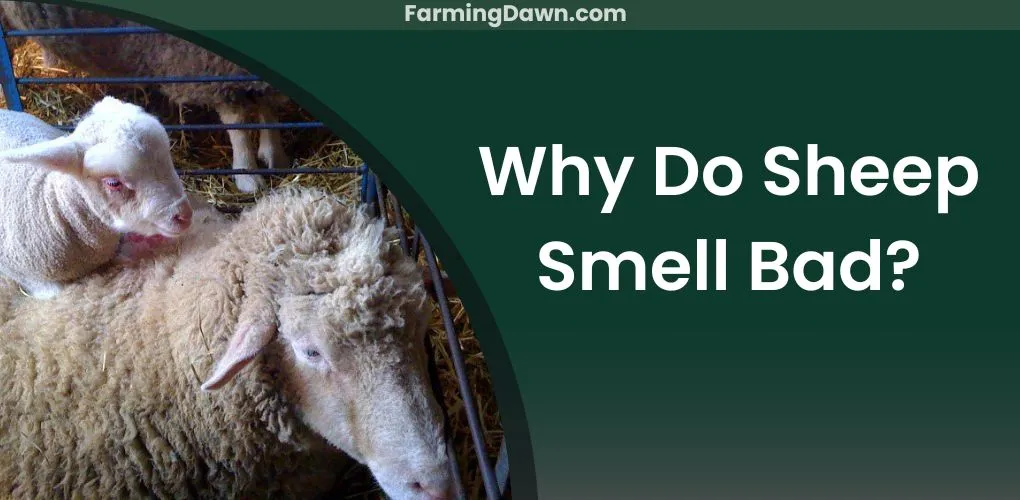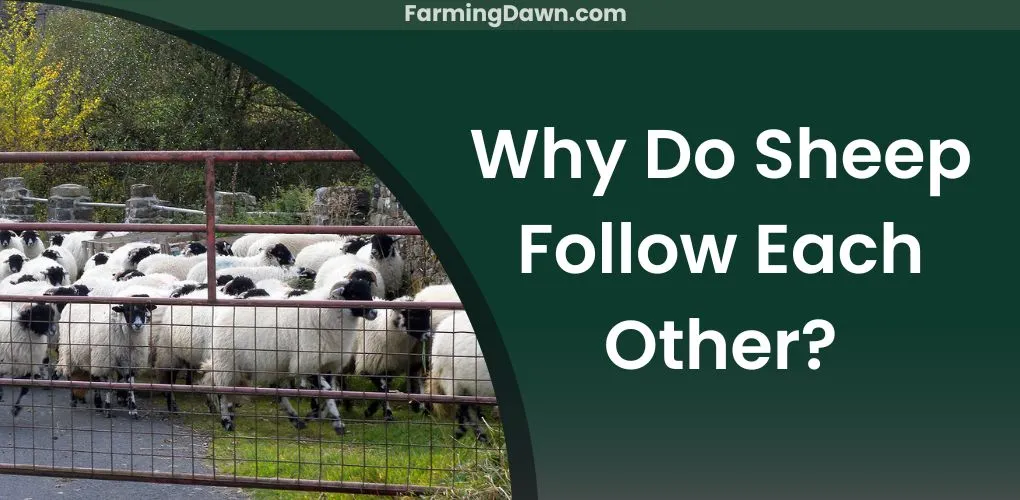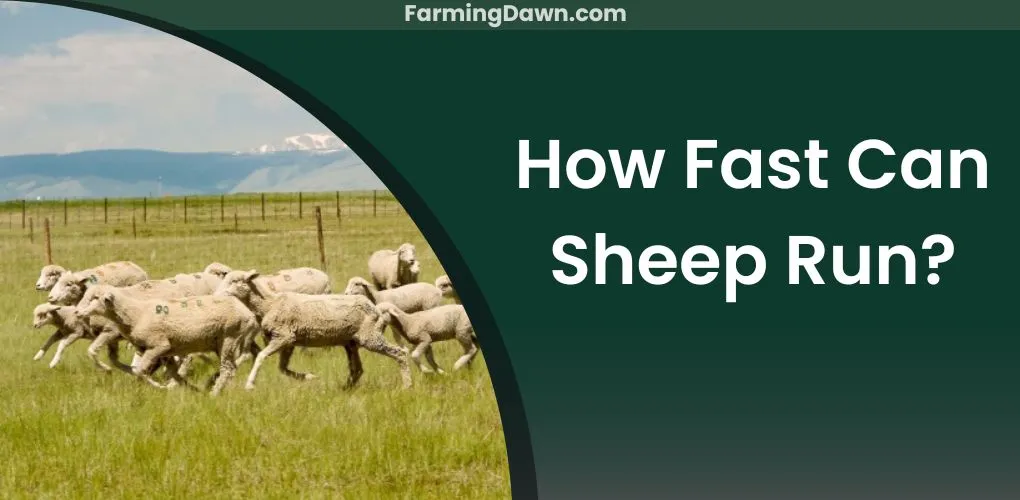Sheep are one of the most important domestic animals in the world known for their adorable faces and fluffy wool. They give us wool, meat, and milk. If you’re planning to start a sheep farm or are simply intrigued about these fuzzy animals, you might have asked yourself, “How long do sheep live?”
Today I will give you everything you need to know about sheep lifespan, 5 stages of sheep life cycle, and factors that can affect the lifespan of sheep.
What’s the Average Sheep Lifespan?
The average lifespan of sheep can range from 6 to 14 years, depending on the breed, genetics, and environmental conditions. With the right care, some sheep breeds, like the Merino, can live up to 20 years or longer. Sheep kept as pets or for breeding typically live shorter lives than those raised for meat or wool production.
A sheep’s health and food can also affect how long they live, so it’s crucial to give them a balanced diet and frequent veterinarian care.
It is also possible for environmental factors, such as weather, parasites, and predators, to affect a sheep’s life expectancy. These factors are discussed in detail in the next sections.
How Long do Sheep live as Pets?
Sheep generally live 10 to 12 years on average when kept as pets. It has been reported that certain sheep can live up to 20 years. The lifetime of sheep is significantly influenced by their breed. It is well known that some breeds live longer than others. As pets, sheep can provide companionship and entertainment.
Being social creatures, they cherish time spent with their owners. However, it’s important to remember that sheep need daily care and attention. Balanced food, clean water, and high-quality hay should all be available to sheep. They also require routine vaccines and veterinary exams to stay healthy.
How Long do Dorper Sheep Live?
Dorper sheep are a popular domestic sheep breed with South African roots. They are known for being resilient, adaptable, and producing high-quality meat. How long do Dorper sheep live is a typical query among those who raise Dorper sheep.
Dorper sheep can live for 10 to 12 years on average. However, there are a number of factors that can affect this lifespan, including genetics, diet, environment, and medical care. Well-cared-for Dorper sheep can live longer than those that are neglected or mistreated.
How Long do Sheep Live in the Wild?
Sheep typically live between 10 and 14 years in the wild.
Other wild sheep species, like the bighorn sheep, can live in the wild for up to 20 years. They can survive in these harsh environments because of the physiological and behavioral characteristics they have developed to survive in their challenging and hostile environments.
One of the most important factors influencing lifespan of wild sheep is their diet. Wild sheep graze on various types of grasses, bushes, and herbs, which provide them with the vitamins and minerals necessary for healthy growth and development.
Sheep are preyed upon by a variety of predators, such as wolves, coyotes, and bears. So, a wild sheep’s ability to repel or resist these predators may be crucial to its survival.
How Long do Sheep Live in Captivity?
Sheep lifespan in captivity is generally between 10 and 12 cycles around the sun, but in the commercial world, they lose their productivity and pass away five years before they reach their maximum potential. This means that they will likely die before they reach the age of half.
Sheep struggle mightily in their natural habitat against predators, habitat degradation, and poaching, which has led to the designation of several wild sheep subspecies as being in danger of going extinct.
Why Do Some Sheep have Longer Lifespan Than Others?
Sheep are hardy creatures that can survive in a range of conditions. However, some sheep appear to live longer than others. Various factors may contribute to this, including diet, living conditions, housing, size, sex, genes, and medical care.
Nutrition
First and foremost, a sheep’s longevity is greatly influenced by nutrition. Sheep are more likely to live longer if they are well-fed and have a balanced diet. This is so that their immune system and general health can remain strong.
Environment and Conditions
Depending on the environment and circumstances, sheep may live for a shorter or longer period of time. Extreme weather, tough conditions, and contaminated pastures make sheep more prone to illnesses and infections, which can limit their longevity.
Enclosure and Housing
Sheep housing and enclosure can potentially shorten or lengthen their lives. Sheep housed in crowded, unhygienic environments are more susceptible to illness and stress-related health issues, which can shorten their longevity. Unhygienic environment could also be reason why sheep smell so bad.
Size
A sheep’s size can also affect how long it lives. Compared to larger breeds, smaller sheep typically live longer. This is because smaller sheep are less likely to experience joint and bone-related health issues than larger breeds do.
Sex
Sex can also have an impact on the sheep life cycle. Compared to male sheep, females typically live longer. This is because females are less prone to illnesses and health difficulties including bladder obstructions and reproductive disorders, that are common in males.
Genes
Genetics can play a crucial role in a sheep’s lifespan. Sheep of some breeds may have shorter lifespans due to genetic susceptibility to specific health issues. Therefore, choosing genetically sound and healthy breeding stock is essential to raising healthy offspring.
Healthcare
The lifespan of a sheep is also significantly influenced by healthcare. Deworming, vaccinations, and regular veterinarian exams can all help keep diseases and infections at bay, extending the life of sheep.
The 5 Stages of a Sheep Life Cycle
Sheep go through five distinct life stages, each with a unique set of traits and difficulties.
Newborn Stage
The newborn stage is the first stage of a sheep’s existence. A lamb is reliant on its mother at this time for nutrition and care. Lambs are born with a thick wool coat that protects them against the cold. They spend most of their time sleeping and nursing.
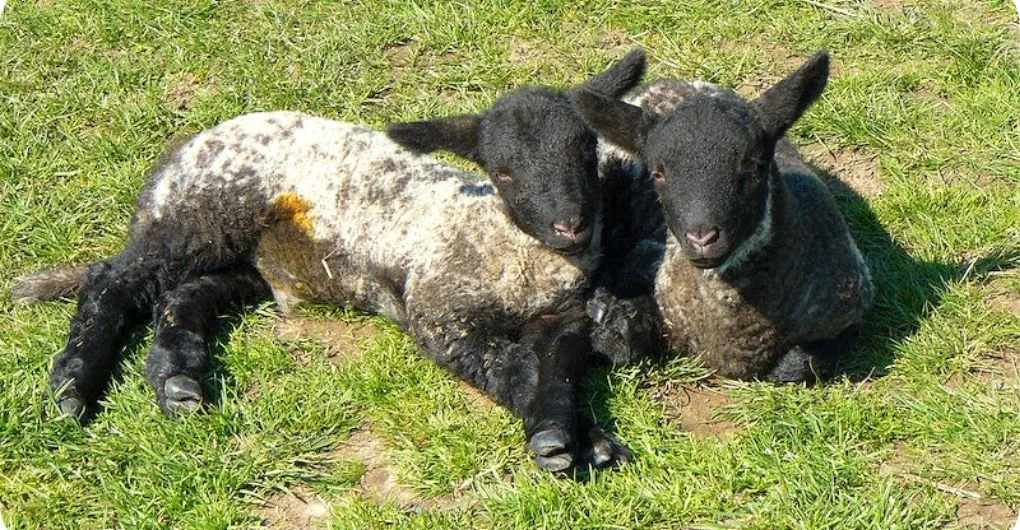
Lamb Stage
Once a lamb is about six weeks old, it enters the lamb stage. Lambs start to investigate their surroundings and learn social behaviors during this period. In addition to their mother’s breast milk, they begin to graze on grass and hay. It’s crucial to give them a secure atmosphere, so they can mature and grow appropriately.
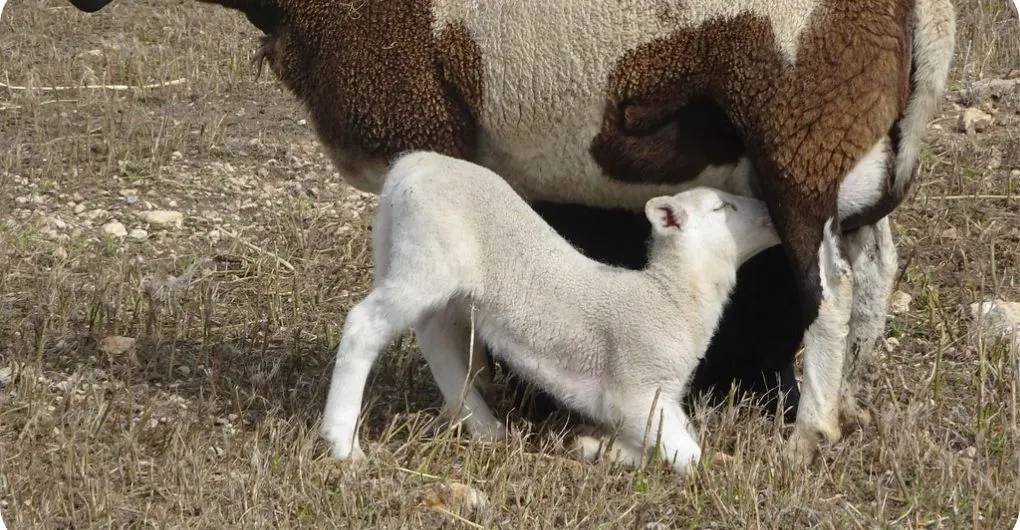
Yearling Stage
A sheep enters the yearling stage after one year. Yearlings are weaned from their mothers and are regarded as adolescents/teenagers. They start to develop their personalities and may exhibit signs of independence. They still need to grow since they need a lot of nutrition to do so. At yearling stage sheep start to headbutt each other to show dominance within the flock.
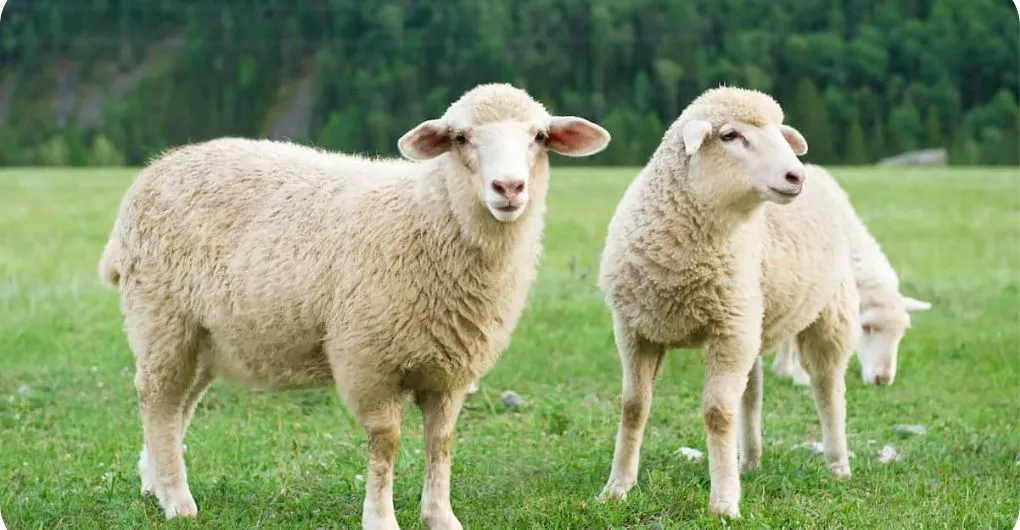
Adult Stage
The adult stage of a sheep’s life lasts from around two years of age until it is seven or eight years old. Sheep are sexually mature and able to reproduce at this point. They are generally healthy and active but may start to show signs of wear and tear as they age.
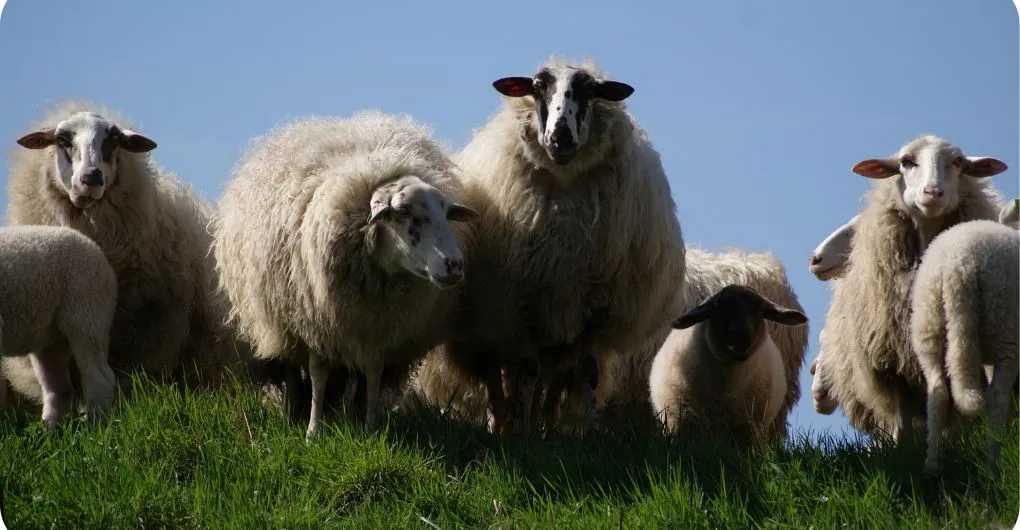
Senior Stage
The senior stage is the last phase of a sheep’s life. Sheep reach this stage when they are eight years old or older. Elderly sheep may develop health issues like arthritis and teeth loss. Provide them extra consideration, special care, and attention to keep them content and comfortable.
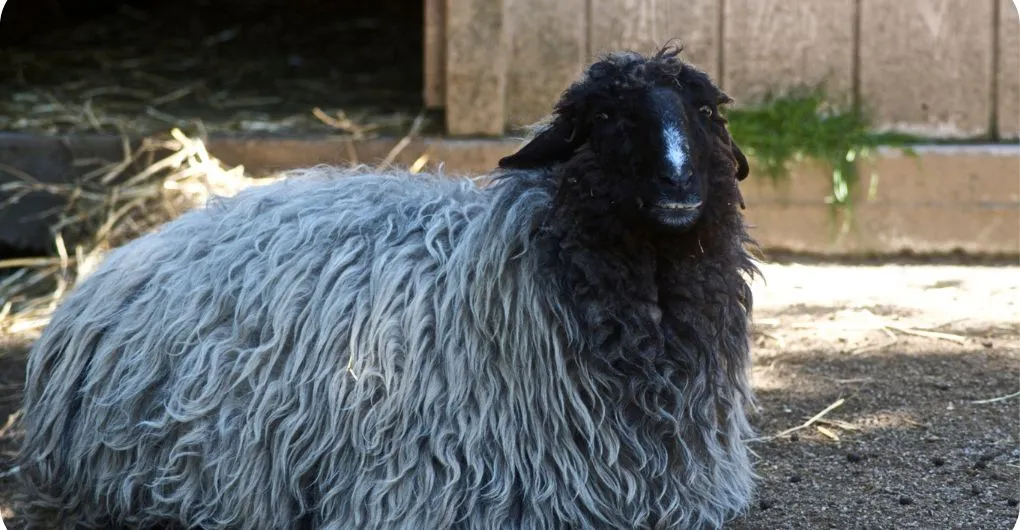
How to Extend the Lifespan of Sheep?
Here are some suggestions for extending your sheep’s life and safeguarding them against common dangers.
Preventing Bloat in Your Sheep
Bloat is a common digestive problem that affects sheep, especially those that graze on lush pastures. It happens when the rumen fills with gas and expands, placing pressure on the diaphragm and making it difficult for the sheep to breathe.
To prevent bloat, avoid drastic dietary changes, limit access to legumes and clovers, and make sure your sheep always have access to clean water.
Protecting Your Sheep from Parasites
The health and productivity of your sheep can be significantly impacted by parasites like worms. These worms can cause weight loss, poor wool quality, anemia, and sometimes death in extreme circumstances. Efficient pasture management will keep your sheep free of parasites by alternating pastures and preventing overgrazing.
To assess the success of your deworming strategy, you should frequently deworm your sheep and keep track of their fecal egg counts.
Protecting Your Sheep from Predators
If you live in a rural region, predators like coyotes, foxes, and dogs can pose a serious threat to your sheep. If you want to keep them safe from predators make sure your pastures are securely fenced and that your sheep have access to shelter at night.
To safeguard your herd from predators, you can also utilize guardian animals like dogs or llamas.
How to Tell Your Sheep’s Age
There are several ways to determine a sheep’s age, and with practice, you may become fairly adept at it.
By looking at Teeth
The easiest way to determine a sheep’s age is to look at its teeth. Sheep have four sets of teeth throughout their lifetime. It is possible to determine a sheep’s age by counting its teeth and observing how they appear. The front teeth of a sheep are called incisors, and they’re the easiest to examine.
The first set of incisors will emerge when the sheep is about a year old. The second pair will begin to appear when the sheep are about two years old. The third pair will appear when the sheep is about three years old, and the fourth pair will appear when the sheep is about four years old.
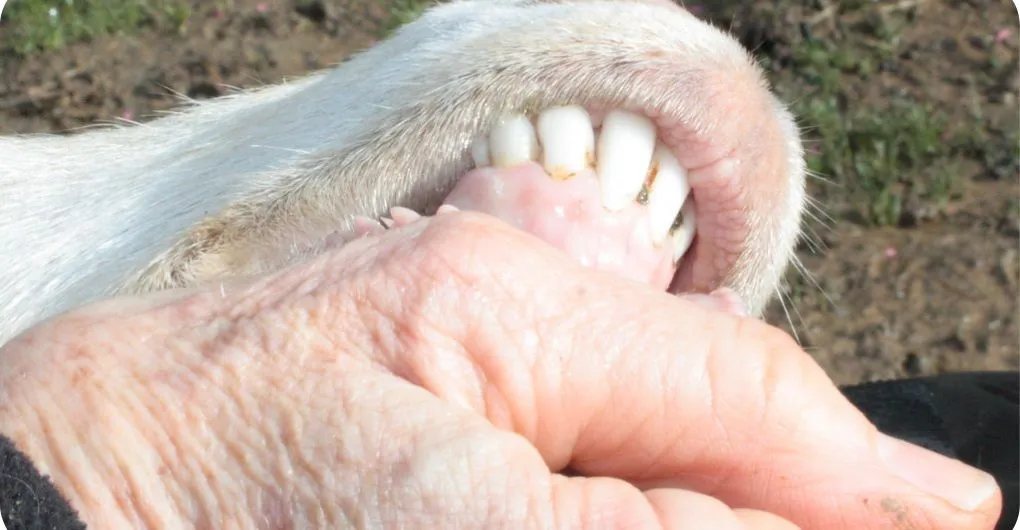
By looking at Horns
The second method is to use sheep horns. A sheep’s horns grow throughout its life, and you can tell how old a sheep is by looking at the size and shape of its horns. Younger sheep have shorter, smoother horns than older sheep, which have longer, rougher horns.
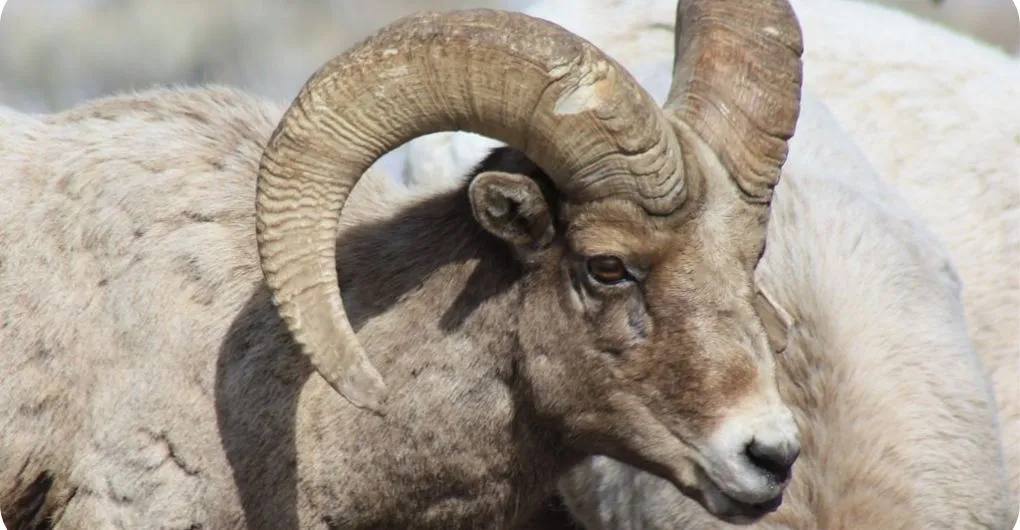
By Examining Sheep’s Fleece
Examining a sheep’s fleece can also help to determine its age. As the sheep get older, their fleece will become thicker and coarser. However, the fleece of younger sheep will be softer and finer.
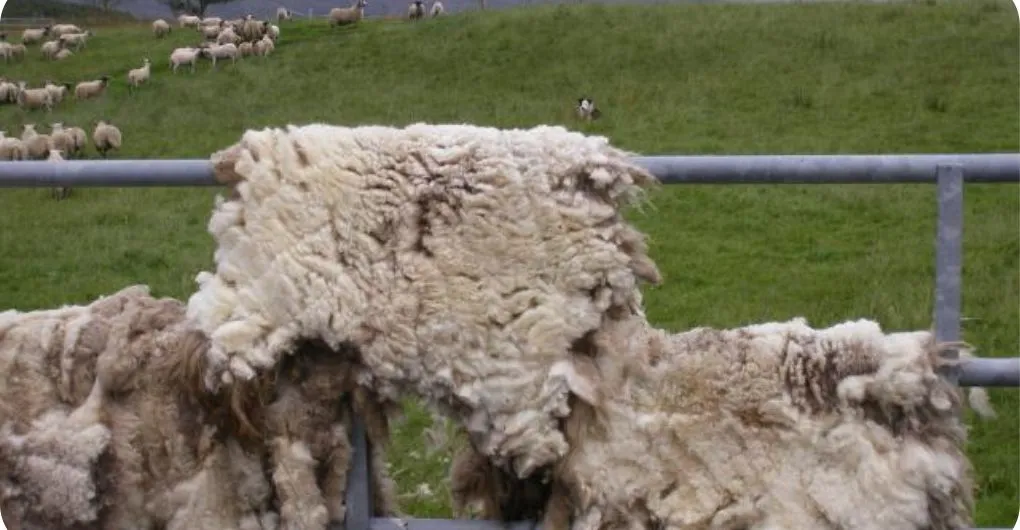
How Old is too Old for Sheep Production?
The reproductive years of sheep are limited to 5-6 years, although sheep’s lifespan can extend from 10 to 12 years.
As soon as the sheep reach the age of five or six they begin to exhibit indicators of lower fertility and decreased lambing rates. I will recommend you cull unproductive ewes to increase your production.
Nevertheless, by giving your ewes the right diet, routine veterinarian treatment, and ideal living conditions, you can increase their productive longevity. You can do this to boost the number of lambs they produce, which will increase your profitability.
How Old was the Oldest Sheep?
The crossbred ewe holds the record as the oldest sheep ever, living to be almost 29 years old. She birthed 40 lambs and had her last healthy one at 28 years old.
Methuselina was another contender for the title, living to be almost 26 years old. Her owner credited her healthy teeth for her long life. Sadly, she passed away in 2009 after falling off a cliff.
The third-oldest sheep ever recorded was named Lucky, and it lived to be 23 years old. Lucky was a rare breed of sheep known as a Soay sheep, which is native to Scotland. All three of these sheep have their name in Guinness World Records.
Final thoughts on How Long do sheep live?
Understanding the sheep’s lifespan is crucial for any shepherd or aspiring farmer. Knowing how long do sheep live will help you better prepare for their care and assure their welfare. Keep in mind that the average lifespan of sheep is about 10 to 12 years, however, this can vary by breed and other circumstances.
Thus, whether you’re keeping sheep for meat or wool, it’s critical to provide them with the greatest care to ensure a long and healthy life. You and the sheep both benefit from this situation! I hope you found this information interesting. Share any successful methods you may have for extending sheep’s lives with the rest of us.



